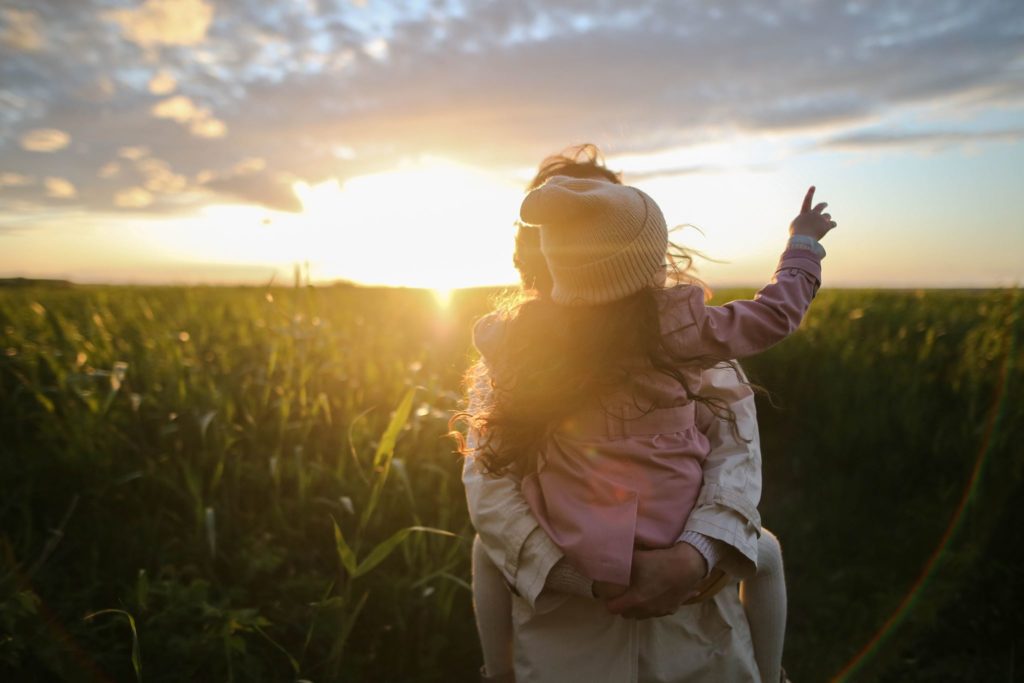
“Throughout our fostering story we learned that there are so many children in this country looking desperately for a loving family…“
It’s not always easy to know what to say to foster families… but so many times, in truth, people say the wrong thing. I’ll be honest that our fostering story taught us that it hurts when you’re told that the child you foster is lucky because you know they’re not really lucky, as that’s not the right word to describe the pain they’ve had to endure.
We started our fostering story into foster care three years ago, we needed to take a course and undergo some psychological assessments, including home visits, and interviews with our friends and family by social workers. Finally we were approved by the centre and told that we would be contacted once a child was matched with us, at this stage we were asked if we would prefer a boy or a girl, and we were told that we could also select the age of the child. We had this choice because…
There were so many young people waiting for a home to go to, it was overwhelming to discover that so many children in this country are looking so desperately for a loving family.
Most families choose babies, but we chose to foster an older child, which meant of course that she had a history. Perhaps we were a bit naïve, but our biological daughter was growing older and having a baby would not have worked well for our family.
Our first meeting went really well, she was chatting and excited, but of course we were all really nervous. The final decision happened quickly, and she moved in a few days before her birthday, gradually over the course of a week, starting with sleepovers and culminating with her arrival to her new room, she arrived with a few things packed into a large brown suitcase. I wasn’t expecting her to walk into our home so casually, she put her name on the door, unpacked her bags, took a long look around and decided to stay.
Two days later I was baking her birthday cake and we threw an impromptu party at my friend’s home.
She had just turned ten. We had no idea how long she would be staying.
Our foster daughter’s parents are not able to take care of her, over the past ten years she has lived in a children’s home, then moved in with a temporary short term foster family for emergency care, then back to her home, but then off again to another family before finally finding our family.
She has never had permanency, stability or routine, and she has had to manoeuvre through the world to survive it, but her resilience is astounding.
I never knew what parentification was before I started out on this journey, but I soon learned that it meant that she had been given adult responsibilities too early, long before she was ready for them, and this had impacted her growth and development. She had been a carer at a very young age, so things that others found “cute” or “helpful” like holding bags or opening doors for people, offering to cook dinner for us, trying to solve any disagreements within the family, or waiting for people so they don’t get left behind on a school outing, were actually signs that she had taken on board too much responsibility for her age and she was losing her childhood as a result. Somehow we had to give it back.
We slowly learned that neglect and poverty had shaped her outlook on life, she always feels different, over thinks and worries about things, she has a vivid imagination so sometimes this leads to nightmares even during the day time. Often she wanted to be in charge, and didn’t trust the adults around her to look after her, this was understandable as they had proved time after time that they were not capable of providing anything close to stable.
People think she’s nervous and bossy, but she’s just trying to stay alive.
Our social worker visits frequently, once about a year into this experience she asked us about our routine. I explained that it was basically going to school, home for supper, and some shopping or cinema trips on the weekend. “It’s a bit boring!” I said, apologetically. She just looked at me, “That is not boring, it’s stable.”
This is what she needs. Routine was really important and it helped her to know what was coming next, and made her less anxious about the day ahead. We started a bedtime routine which involved reading children’s books that we had at home, and we read to her every night for a year.
The first time we read a story together she could not sit still, but I asked her to act the story out with her soft toys quietly while I read to her, she loved doing this and she felt in control, and calm again. After a year of reading together she discovered books by Jacqueline Wilson and consumed them. She was able to read by herself, and because she related to the stories where young children are facing challenging situations, even without knowing all the words on the page, she could understand the heroine who was struggling to survive her childhood.
The stories gave her more than a bedtime routine, they gave her language to structure her pain, and they helped to her to put into words the experiences she had survived, because they were so similar to the characters in the books, she would come up to me and show me a passage and say – this is how I feel. In this way she started to find her voice, and a way out of the maze of her childhood trauma.
Sometimes she tells us her voice is meaningless and no matter what she says it makes no difference, those are the bad days.
The hardest thing about our fostering story was knowing that the child that you love has seen things that make them believe that the world is a hard and dangerous place to grow up in. I wanted her to make friends, knowing the importance of building a tribe, so I enrolled her in a summer programme two years ago when she had just moved into our home.
The organizers knew us quite well, so they knew she was a new addition, and asked if there were any issues as she was in foster care, a reasonable question perhaps, but this was the first time I had needed to defend her behaviour to strangers. It struck me that I had never had to do this for our biological daughter. It made me angry because in fact, our foster daughter is one of the most responsible children I know and truth be told she could probably run the summer programme single handedly. However, of course I know now that this is not necessarily a good thing as it is once again an example of parentification.
Children who are fostered often find it hard at school, to talk about their two sets of parents, their “real” mum and their “foster” mum. I have heard myself described to friends as “Like a step-mother, but nice”, simple things like making mother’s day cards or drawing a family tree for a school project can be challenges that teacher’s don’t immediately recognise as trauma inducing for young children in care.
On first visit to the dentist, we sat in the waiting room and she explained to me that she had never been to a dentist in her entire ten years of being in care. I can not explain to you how wonderful the dentist was, she read my hastily scribbled note written in the waiting room, in which I tried to explain the situation while somehow trying to fathom how a child of this age, growing up in the care system, had never been seen by a dentist. We had no idea what state her teeth would be in or if she needed any fillings.
Having lived with many families and experienced so much also leaves children more open to being taunted at school. In her first year at the wonderful school she is in we had many issues of bullying, we talked her through situations, we explained that she couldn’t be aggressive even though she needed to stand up for herself, that there was no need to be so overly competitive. We talked a lot about what to say, I even role-played various scenarios and situations so she could learn how to argue back effectively, without getting on her high horse or insulting her aggressors on the playground. She needed to have a voice which was powerful but she also needed to know how to control it. We tried to change her view of the world as a dangerous, aggressive place where people do not trust each other, where everyone is out to get you and uses you for their own gain by showing her friendship, travelling and family dinners together – she really loves Friday Pizza nights.
Here is my message – if you know a family who is fostering right now as described in our fostering story who has been brave enough to take this step, then please take a moment to think about what you’re going to say to them and consider how you can support those who need it the most.
Take a moment to think before you judge and to consider how lucky YOU are … that you have never had to leave your home and wonder when you’d be going back, how brave you’d have to be to trust those strangers to look after you; take a moment to admire those who accept what others discard, and before you decide what our children are, based on a movie you watched in the 80s, take a moment to be grateful that you were never in the position they have had to be in, or feel the shame they’re made to feel on a daily basis for their situation, which they find themselves in through no fault or actions of their own.
Lucky is me. I am lucky.
These children we meet are brave, resilient, plucky and strong. They deserve better, they deserve a second chance. Once you turn it around and see the world from the point of view of this child you will understand that they have never been more ready for a second chance. Our fostering story taught us that fostering is not a walk in the park for any child or parent, or sibling. There are so many silent battles, and so many times you try to protect the children you meet, you can’t protect them from everything, but you can give them the support they need to find their voice, and to be their stable place. She asked me last week how long it takes to feel secure in yourself, and confident about the future. I said five years because I needed a number. Let’s hope we get there.
Are You Interested In Fostering?
For more information with regards to fostering please visit the following link where you can also find another link to fill in an application form.
Link accessed on 19th August 2020.
Did you enjoy reading ‘our fostering story’? Have you got a fostering story of your own that you’d like to share? Contact us or send us an email at [email protected]





